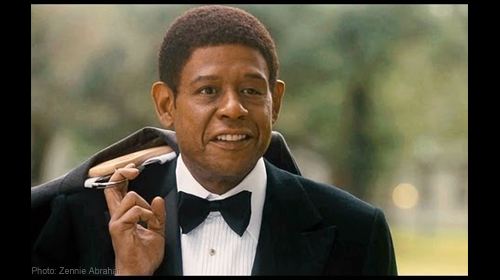
2013 was considered by some to be a "" for films featuring African-American actors and stories, due in part to the release of Lee Daniels' The Butler. Despite notable performances by Forest Whittaker and Oprah Winfrey, the film failed to garner a single Oscar nomination. According to , part of the reason is that "there's not enough Black people voting, the ratio is still off. The majority of voters don't like Black film."
That observation underscores the relevance of the story that The Butler tells. Whether or not the film is Oscar-worthy, it offers important lessons about the dramatic events of the 20th century, post-war, civil rights movement, told through the life of Cecil Gaines, a fictional character based on the real-life Eugene Allen, who worked as a butler for eight different U.S. presidents over three decades.
The central relationship in the film is between Cecil and his son, Louis, who challenges his father as overly accommodating of 1960s racial inequality. Louis leaves the family's home in the nation's capital to protest Jim Crow in the American South. Cecil, who left the violence of a Georgia cotton plantation for the relative safety and prosperity of Washington D.C., views his son's choices as misguided and foolhardy. Scenes in the movie viscerally depict just how dangerous it was for freedom fighters of the civil rights eraÔÇöparticularly those of African descentÔÇöto knowingly break laws requiring racial segregation at lunch counters and on buses, among other places. Indeed, the film attempts to capture in vivid detail what it felt like to be spat upon and beaten by bigots, attacked by police dogs in Selma, firebombed in a bus on the Mississippi freeway, and repeatedly thrown in jail. It forces us to remember that advances like the Civil Rights Act of 1964 and the Voting Rights Act of 1965 came only after the loss of human life drew national attention to the need for such laws. They were not possible but for the hope, audacity and courage of thousands of ordinary people who dared to believe that the grossly unequal world that surrounded them shouldÔÇöand couldÔÇölive up to promises of racial equality and respect for human dignity. The Butler makes a contribution simply by helping generations of Americans who did not live through the turbulent 1960s and 70s to understand just how recently legally mandated segregation and its embedded violence ruled large parts of our country, and just how radical it was to try to dismantle it.
But The Butler also offers another important, and more subtle, lesson about diversity and dissent within the African-American community and the civil rights movement itself. It now seems obvious that racial segregation required by law and enforced by violence was unjust, immoral, and unconstitutional. We justifiably celebrate the Freedom Riders and other heroes who engaged in civil disobedience to protest it. But by highlighting the deep conflicts between Louis's demand for an immediate end to segregation and Cecil's more cautious approach, as well as the different opinions of their friends and family, The Butler reminds us that it was far from clear how to end Jim Crow when it was still in force. The film also shows that Louis's bravery and vision both secured important gains, and, at times, took foolish, senseless turns that failed to advance the cause. Meanwhile, Cecil, more often portrayed as the proponent of the status quo, works slowly but surely toward convincing the White House that its Black employees deserve equal pay for equal work, thus securing a reform essential to improving the well-being of hundreds of his African American co-workers and their families. In this way, the film refuses to essentialize one "right" approach to advancing civil rights for all times and places. It shows that both radical vision and incremental change are integral to advancing social justice.
These lessons ring true today. Considerable distance remains on the path to true racial equality, with our national addiction to mass incarceration, racial profiling, and gross inequalities in the education and housing available to communities of color. At times the path forward is obscure. But diversity and dissent in our own ranks forces those of us working to advance racial equality to strive for smarter approaches and more persuasive arguments. And, in the end, the world needs both Louis and CecilÔÇöthe radical visionaries and the hard-working, ordinary people whose everyday lives break down stereotypes. There is simply too much work left to be done.
Learn more about Black History Month and other civil liberties issues: Sign up for breaking news alerts, , and .

